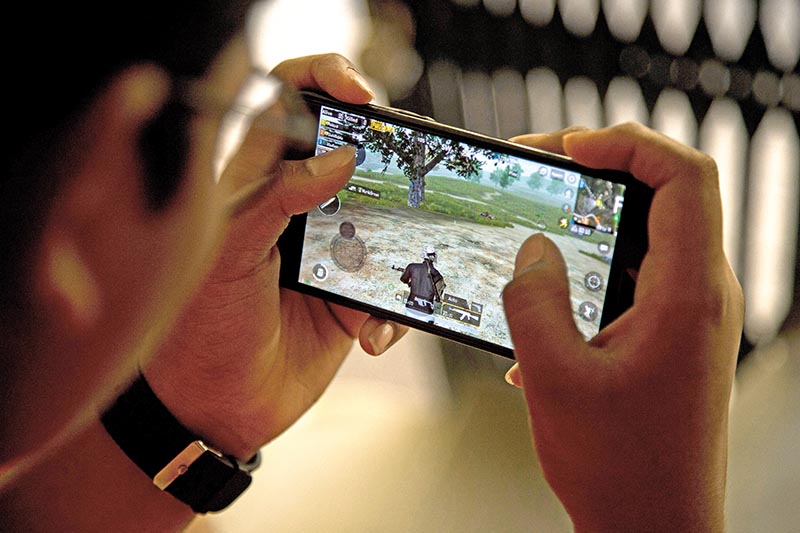Govt bans popular online game PUBG
Kathmandu, April 11
The government today banned online game PlayerUnknown’s Battlegrounds, popularly known as PUBG, following complaints that besides hampering studies of school- and college-going students, it was leading to violent behaviour among those addicted to the game.
PUBG, which was released in 2017 for Windows PC and in late 2018 for smartphones, is an online multiplayer battle royale game. In the game, up to 100 players parachute onto an island and scavenge for weapons and equipment to kill others while avoiding getting killed. The last player or team standing wins the round.
Nepal Telecommunications Authority, the telecom sector regulator, today directed all internet service providers of the country to block internet traffic coming from PUBG servers.
NTA Spokesperson Min Prasad Aryal said they decided to ban the game on the recommendation of the Metropolitan Police Crime Division, Teku, following multiple complaints from schools and guardians that the addictive game was hampering studies and mental health of their wards and students.
According to MPCD, it has been receiving both verbal and written complaints from schools, individual guardians and schools’ and guardians’ organisations for the past few months. MPCD Chief Senior Superintendent of Police Dhiraj Pratap Singh said they received complaints from eight schools and 25 individual guardians, besides their organisations, in the past month.
He said maximum cases were related to players exhibiting violent tendencies such as hurling mobile devices at parents when asked not to play the game and banging mobile devices on floor.
“Following the complaints, we carried out a study on the ill effects of the game and ban imposed in some Indian states. We took approval from Kathmandu District Court before recommending that the NTA ban the game,” he said.
Experts and stakeholders, however, said banning the game was neither possible nor a solution to the problem, especially in this era of free internet.
Federation of Nepali Guardians Coordinator Subhaprabhat Bhandari highlighted the need for counselling students, their parents and teachers on how to use and not misuse internet.
He said addiction to the game was no doubt creating problems — students becoming aggressive, not paying attention to their studies, not completing their home assignments, playing the game overnight resulting in insomnia and absenteeism.
“But how many games will you ban? Today’s kids are so tech savvy they will easily find a way out,” said Bhandari. “So we can address this problem only if we successfully persuade kids to avoid such games themselves.”
Internet service providers also expressed a similar view. President of a popular ISP, Subisu, Sudhir Parajuli said the ban would be ineffective because almost all those addicted to PUBG were pretty much aware of free VPN (Virtual Private Network) services that provide alternate access.
VPN services allow users to change their IP (Internet Protocol) address to one originating from other countries, giving unrestricted access to any internet service restricted in one country. “So it is impossible to ban VPN services as there are hundreds of thousands of such free service providers,” said Parajuli.
Not only kids, but adults are also addicted to the game. Psychologist Gopal Dhakal said they were receiving cases of even professionals not being able to concentrate on work and missing deadlines, besides other behavioural, social and family problems, because of addiction to PUBG.
He attributed the addiction among children to lack of awareness among parents and teachers and that among adults to unemployment. “Parents hand over their smartphones to kids to appease them. This problem cannot be solved until players, parents and teachers are educated,” he said.
Even minors who are not supposed to play such violent games are hooked to PUBG. This is purely due to negligence on the part of their guardians and teachers, said Santosh Sigdel, president of Nepal Chapter of New York-based Internet Society that works for internet freedom. He said banning could be an immediate response to the crisis, but it would not be sustainable unless it was accompanied by serious awareness campaigns. “There is a serious need to develop discourse on safe internet use,” he said.






